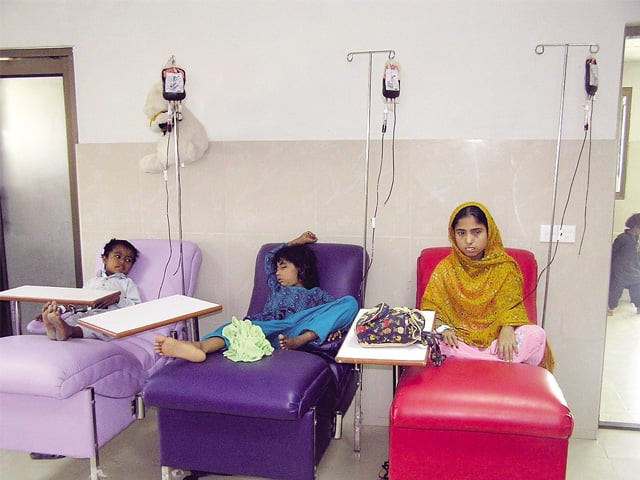5000 children in Pakistan diagnosed with thalassemia every year: Experts
Thalassemia a prevalent genetically transmitted blood disorder, with carrier rate of five to eight per cent.

According to the health experts, thalassemia is a major health concern in Pakistan and is the most prevalent genetically transmitted blood disorder, with a carrier rate of five to eight per cent.
One of the possible solutions to combat the health hazard is public awareness. Experts pointed out that media can help Pakistan reduce the preventable disease by carrier detection and avoiding in-family marriages.
They said that the issue should be included in the high school curriculum and urged educational institutions to kick-start the awareness program.
Treatment of thalassemia is expensive, the experts said, adding that prevention programmes should be immediately initiated in order to reduce the burden of thalassemia patients.
They said screening to identify thalassemia carriers, genetic counseling and prenatal diagnosis can greatly reduce the growth rate of thalassemia affected infants.
Dr Waseem Khawaja from Pakistan Institute of Medical Sciences (PIMS) added that thalassemia is an inherited blood disorder in which the affected children are unable to maintain hemoglobin (Hb) at a normal range. Their bone marrow cannot form sufficient red blood cells and the red blood cell survival is also greatly reduced.
He explained that thalassemia minors carry one defective gene of thalassemia. Under stress, like a surgery or pregnancy, they experience low hemoglobin levels.
Dr Khawaja said thalassemia major is a serious blood disorder which causes severe anemia and related complications. This is caused by the presence of two defective genes.
He said that in a case where both parents are thalassemia minors, there is a 25 per cent chance of birth of a thalassemia major child, 25 per cent chance of a normal child and 50 per cent chance of a thalassemia minor child.
Dr Khawaja added that patients need regular blood transfusions every three to eight weeks to maintain normal hemoglobin levels.
Due to regular blood transfusions, however, there is a high chance of thalassemics being exposed to blood infections like HIV, hepatitis B and malaria.



















COMMENTS
Comments are moderated and generally will be posted if they are on-topic and not abusive.
For more information, please see our Comments FAQ